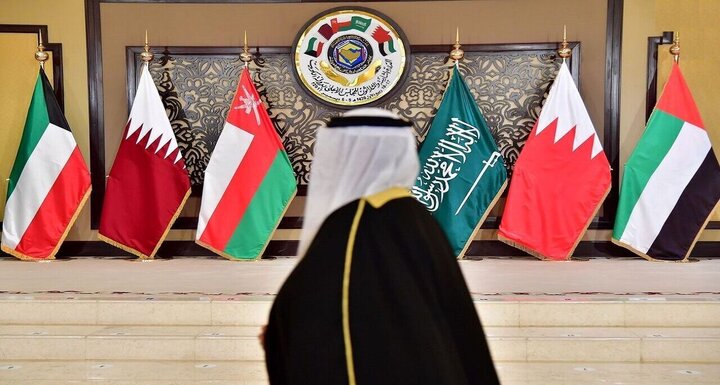Arabic countries and mediation between Iran and the US; Role -playing

, International Group : Take the Gulf Cooperation Council Member States to play the role of the Persian Gulf Cooperation Council. Play mediation in reducing tensions.
This strategy is not only a reflection of their deep concern over regional instability, but also highly in their long-term economic interests, especially within the framework of development programs such as Saudi Arabia and major UAE projects. The Gulf states seek to become important actors in the management of tensions in the region by understanding the inherent relationship between regional stability and economic security.
key reasons for mediation; Economy, security, and avoid duplication of date
mediation of the Arab Gulf states in the Iran-US crisis can be analyzed in three main axes: First, the need to protect the ambitious economic projects of these countries, which endangers any regional tension. For example, Saudi Arabia, which defines the implementation of the landscape as the axis of its domestic and international developments, knows well that widespread war or instability can disrupt the flow of foreign investment and the development of non -oil sectors. The same logic is also found in the United Arab Emirates; Where Dubai, as the region’s commercial hub, has always benefited from economic ties with Iran.
Second, historical lessons of neglect in past negotiations; The bitter memory of being dismissed from the Brajam process in year 2 and the disappointment of the US’s lack of consultation under the Biden has led these countries to the conclusion that active presence at the negotiating table guarantees their interests.
Third, the change in the paradigm in foreign policy of these countries is from an ideological approach to pragmatism; Even Saudi Arabia, who had a confrontation with Iran, has now given a priority to deconstruct and become effective in global equations.
Saudi Arabia; From contrast to targeted tension
Riyadh, once known as the leader of the anti-Iranian , has now shown to restore its priorities in year 6, with the revival of diplomatic relationships with Tehran in year 6. This change is not just a tactical maneuver, but also part of a larger strategy that considers economic development to be the main propulsion of foreign policy. Saudi Arabia, who has experienced talks between Russia, Ukraine and the United States, is seeking a similar role in the Iranian case. However, Riyadh faces restrictions, including historical proximity to Washington, which may suspicious Tehran for its neutrality. However, the kingdom of Saudi Arabia is trying to consolidate its position as a valid intermediary.
diameter; Multifunctional Diplomacy and Investment in International Credit
Qatar has named himself as an unmatched acting in mediation, relying on the complex network of international relations and successful experience in hosting negotiations such as Taliban-American or Hamas and Israeli talks. Doha, who, in the siege crisis by its neighbors, chose resistance to pressure to cut ties with Tehran, now uses the decision as a political capital.
Qatar’s role in the recent agreement of Iranian-American prisoners is a remarkable example of this strategy. Doha is in a unique position with the largest US military base in the region and at the same time maintaining a relative confidence in Tehran.
United Arab Emirates; Economic pragmatism and indirect role
The UAE, especially through Dubai, has always maintained its economic relations with Iran, even at the height of political tensions. The country, which hosts tens of thousands of Iranian citizens and vital commercial arteries, cannot afford the instability.
Donald Trump’s letter to the Iranian leader by Anwar Qur’an showed that Abu Dhabi, despite the security co-Washington co-worker, is willing to keep the communication channel with Tehran. Understanding its inherent vulnerability to the stresses of the Strait of Hormuz, the UAE prefers to use diplomacy and negotiations to reduce friction.
Oman; Silent Diplomacy Architecture and Heritage of Sultan Qaboos
But the most important and complex role is the reign of Oman. Muscat , relying on Sultan Qaboos’s diplomatic legacy and the unique style of conflict resolution, is recognized as the most trusted intermediary between Tehran and Washington. Oman’s Political Geography – Neighboring Iran on the one hand and security ties with the West on the other – has given it a good situation.
Oman’s selection as hosting the upcoming negotiations is not accidental. By creating a safe atmosphere, it enables the transfer of important and vital messages between the parties. Experience has shown that Muscat is able to convey the warnings of each side to another without orientation; A skill was also exhibited in April when coordinating the arrival of the Saudi-Member delegation to Sanaa for an interview with Ansarullah. Oman’s monarchy has also gained advanced relations with Tehran – which has sometimes gone to security cooperation – has been able to gain Iran’s trust; This is critical to Washington as a guarantee of any possible agreement.
During the progressive negotiations, Muscat , using its relationship network, can incorporate technical suggestions in the two sides in operational plans. On the other hand, Oman has been accepted by Tehran as a neutral actor because of the lack of participation in offensive coalition against Iran.
end; The Persian Gulf as a new field of multifaceted diplomacy
The Persian Gulf’s efforts to mediate between Iran and the United States is not only a short-term maneuver, but also part of the structural transformation in the role of these countries in the international system. Topping into middle powers with the ability to influence global equations requires regional stability that guarantees their economic transformation projects.
In the meantime, Oman has appeared in the Middle East with a unique combination of traditional diplomacy, balanced relations and non-governmental political culture as a model of “soft power” in the Middle East. The success or failure of these mediation will not only determine the future of Iran -US relations, but also the new geopolitical position of the Persian Gulf.
Hoda Yousefi; West Asian Issues Expert


